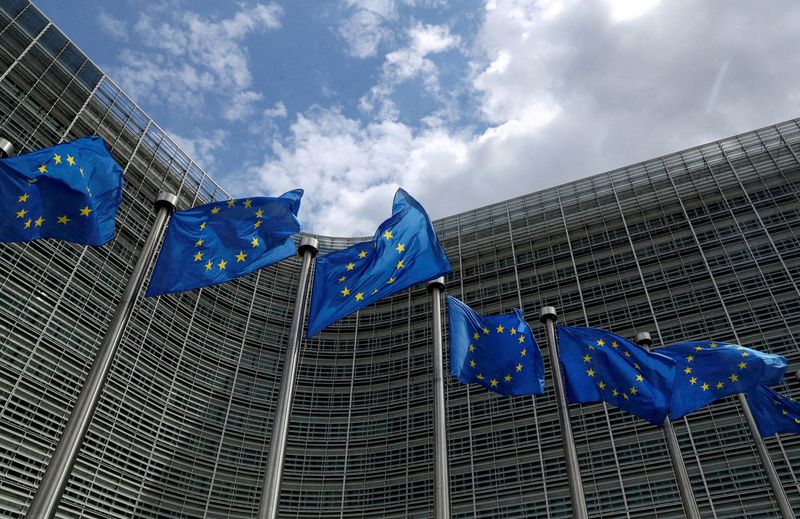By Huw Jones
LONDON (Reuters) - The European Union is due on Wednesday to publish draft rules that give legal underpinnings for a digital euro, if the European Central Bank decided to issue one in coming years.
Central banks across the world, from China and Japan to Brazil, Britain and Canada are looking into digital versions of their currencies to avoid a gap in faster payments being filled by the private sector as the use of cash dwindles.
"This puts at stake the desirable balance between central bank money and private digital means of payment," according to a draft of the European Commission proposal seen by Reuters.
The European Central Bank is expected to decide in October on whether to proceed with a digital euro for retail uses like payments from around 2026 at the earliest, to sit alongside cash. Before it can do so, however, the digital currency must have legal backing in the EU to underpin its acceptance and use.
The EU draft proposal, which could see changes before publication, says that the benefits of a digital euro would outweigh the costs and that the cost of not issuing one could potentially be very large.
A digital version of the euro zone's single currency would be "legal tender", meaning it would have to be accepted as a form of payment, the draft says.
It would support a stronger, faster and more competitive retail payments market, have a high level of privacy, but not be "programmable", meaning its use is limited to specific goods or services, the proposal said.
It would initially only be available to people living in the euro area and visitors.
Credit rating agency Moody's said in May that a digital euro would reduce Europe's dependency on non-EU payment companies such as U.S. duo Mastercard (NYSE:MA) and Visa (NYSE:V), long a strategic wish for EU policymakers.
Banks worry they will be shunted to the sidelines if people shift deposits, a key source of funding, into digital euros.

The draft rules give the ECB powers to limit how much money individuals could store digitally, with a cap of 3,000 to 4,000 euros already mooted.
The proposal would need the backing of EU states and the European Parliament to become law, with changes typically made during the approval process.